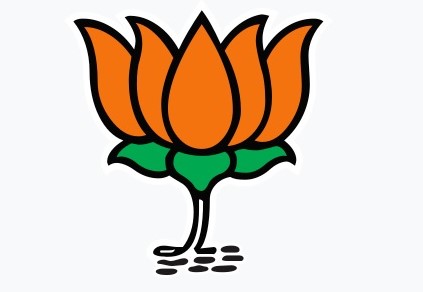Avinash Azad
In a dramatic turn of events that has sent shockwaves through the political landscape of Jammu and Kashmir, the Bharatiya Janata Party (BJP) abruptly withdrew its list of candidates for the upcoming Assembly elections mere minutes after its release. However, hours later, the BJP issued a new list containing the names of just 15 candidates selected for the first phase of the election.
The unprecedented move has ignited a firestorm of controversy within the party ranks, leaving supporters and political observers alike scrambling for answers.
The list, which had been eagerly anticipated by party workers and candidates, was reportedly the result of careful deliberation by a high-level committee. This committee, headed by Prime Minister Narendra Modi and including influential figures such as BJP Working President J.P. Nadda and Home Minister Amit Shah, had seemingly given their stamp of approval to the selections.
The sudden retraction, coming just 30 minutes after the list’s publication, has raised questions about the internal dynamics of the party and the decision-making process at its highest levels. A party leader remarked, “The revolt against the party high command was a surprising development, as BJP workers and leaders in Jammu province have historically never opposed any policy decisions imposed by the national leadership. Today’s events have caught everyone off guard.”
The withdrawal has sparked immediate and intense reactions from BJP supporters and aspiring candidates who found themselves suddenly thrust back into uncertainty. Reports from Jammu indicate that crowds of disgruntled party workers have gathered at the BJP office, demanding explanations and advocating for their preferred candidates to receive tickets.
Attempting to quell the rising tide of discontent, J&K BJP President Ravinder Raina addressed the protesters, emphasizing the importance of every party worker to the organization. “All the party workers of BJP who have gathered here, I respect them, “Raina stated, adopting a conciliatory tone. “Every party worker of BJP is important to us. I will meet each and everyone, I am meeting the senior leaders of the party and having a conversation with them.”
Raina’s words, however, have done little to assuage the feelings of betrayal expressed by long-time party loyalists. The controversy has exposed a deep-seated rift within the party, pitting established members against newer entrants who have joined the BJP in recent years.
One such voice of dissent comes from Jagdish Bhagat, President of BJP J&K SC Morcha, who didn’t mince words in expressing his frustration. “I have been working all day for BJP for the last 18 years, but today injustice has been done to me,” Bhagat declared. His ire was particularly directed at the inclusion of SSP Mohan Lal, a recent BJP recruit who had reportedly been granted a mandate despite joining the party just two days prior. Bhagat’s ultimatum was clear: “If this mandate is not changed, BJP will have to face consequences.”
The sudden withdrawal of the candidate list has brought to the forefront simmering tensions within the party. Long-time BJP members and workers in Jammu and Kashmir are expressing resentment over what they perceive as preferential treatment given to “parachuted” leaders – those who defected from other parties such as the Congress, National Conference (NC), and People’s Democratic Party (PDP) in the wake of the abrogation of Article 370.
This internal strife poses a significant challenge for the BJP as it seeks to consolidate its position in the politically sensitive region of Jammu and Kashmir. The party’s strategy of incorporating influential leaders from other parties was aimed at broadening its base and appeal. However, this approach appears to have backfired, alienating grassroots workers who feel their years of loyalty and service have been overlooked.
Sources within the party suggest that a revised list of candidates will be issued shortly. Rumors are circulating that the new roster may include a prominent radical hindu leader alongwith his leader, in influential figure, in an attempt to balance various factions and interests within the party.
The BJP leadership now faces the daunting task of reconciling the competing demands of various stakeholders while maintaining party unity ahead of the crucial Assembly elections scheduled for the third week of September. The coming days are likely to see intense negotiations and possible compromises as the party attempts to present a united front to the electorate.
This episode has not only exposed the internal fault lines within the BJP but has also provided ammunition to opposition parties, who are likely to seize upon this disarray to question the BJP’s readiness to govern Jammu and Kashmir effectively.
As the situation continues to evolve, all eyes will be on the BJP’s central leadership and their ability to navigate this crisis. The revised candidate list, when it emerges, will be scrutinized closely for indications of the party’s strategy and its attempts to balance old loyalties with new political realities in this strategically important region.






